Mergers and acquisitions
Vodafone's network business has grown steadily since 2008, supported by a number of vertical acquisitions such as automotive, healthcare, smart buildings and agriculture .
Automotive is Vodafone's largest and most profitable segment (accounting for around a third), followed by medical devices and healthcare (21%), energy and utilities (16%) and logistics and transport (10%).
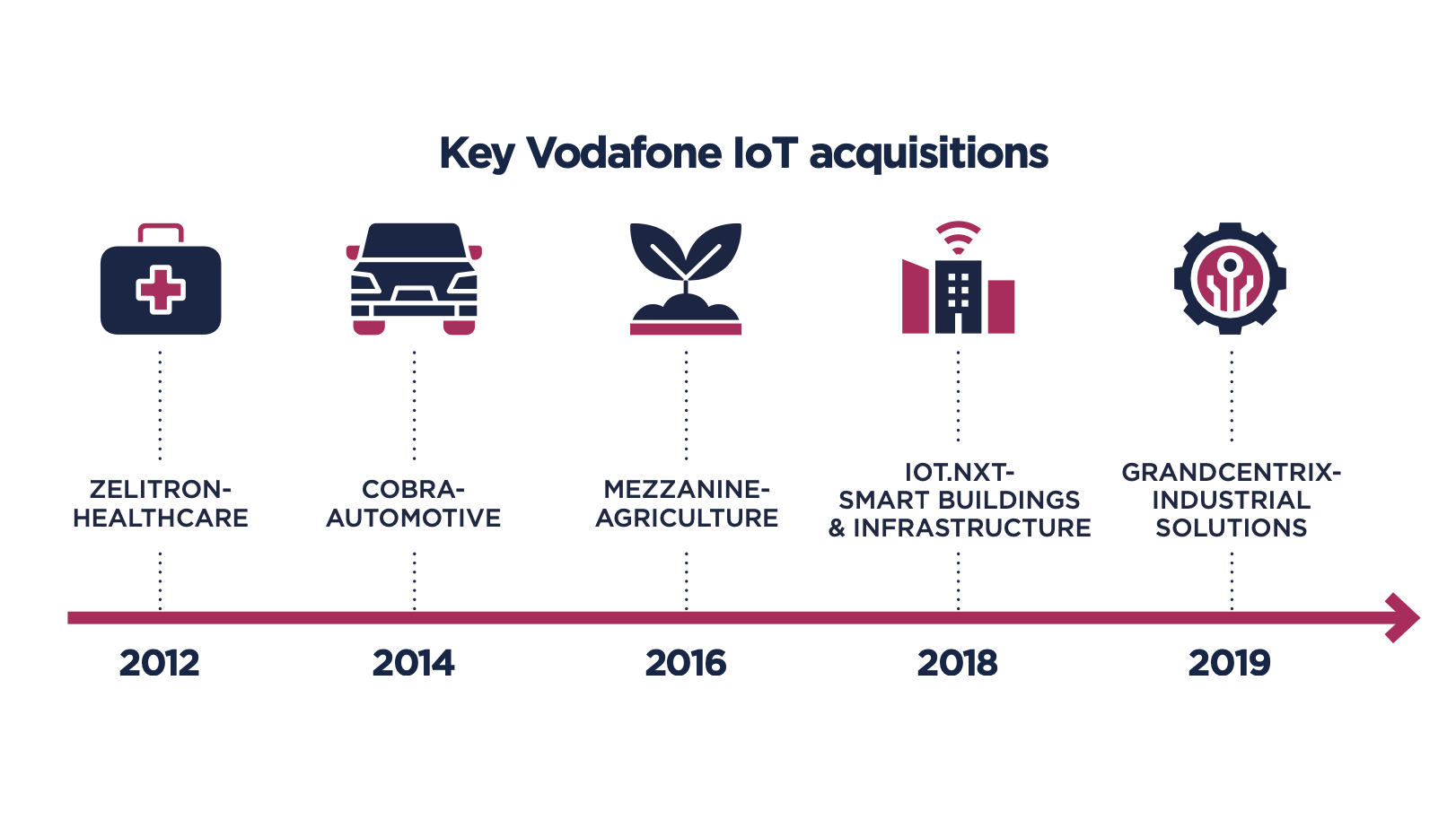
Connectivity management is at the core of the telecom company’s IoT business. As of the end of March 2023, Vodafone had 162.3 million IoT connections, distributed across 190 markets and 570 networks. The IoT connections are across 2G, 3G, LTE and 5G networks, as well as dedicated IoT networks using narrowband IoT (NB-IoT).
By the end of the first quarter of 2023, Vodafone will have more than 1 billion euros in revenue from the IoT business. Analysts say the connectivity segment accounts for the majority of total revenue, growing at a rate of 10% annually, while the sales of hardware devices, terminal solutions and IoT connectivity have increased by 11%, 30% and 8.1% respectively.
Vodafone established a dedicated IoT unit in 2008, leveraging its successful roaming capabilities with its multi-country and multi-regional presence to provide practical benefits to users, such as dedicated roaming tariffs compared to regular roaming charges.
The operator sees strong growth potential in both connectivity and IoT service solutions. Vodafone sees the small and medium-sized enterprise (SME) market as the segment with the least IoT penetration, and as such, it is a particular focus area, along with e-health, smart cities, connected education , and another category called “Green Digital” for the environment and sustainability.
Economy of everything
From a product perspective, Vodafone proposes the concept of “economy-of-things”, which refers to the integration of IoT into products and services that allows devices to interact, trade and transact.
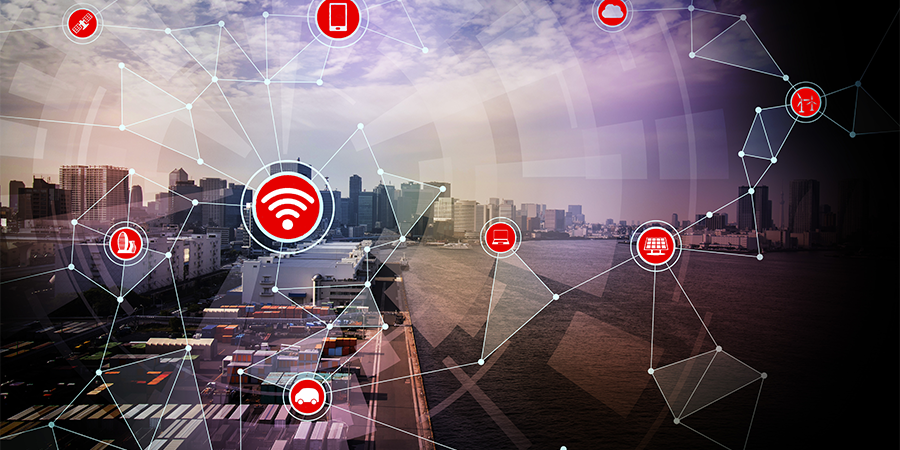
In 2012, telecommunications company Vodafone launched the Digital Asset Broker (DAB) platform, which uses blockchain technology to authenticate devices and connected machines, allowing authenticated assets to trade data and money over a secure, encrypted connection.
In May 2023, Vodafone will spin off its DAB business into a separate unit and sell a 20% stake to Japanese investor Sumitomo. The joint venture said it will initially target the automotive and transport sectors in Germany and the UK, before expanding to other European countries, the US and Asia.
“Under the agreement, Vodafone will transfer its Digital Economy of Things (DAB) platform, as well as its intellectual property, contracts, technology and software, to the new business,” the operator said. “In return, Sumitomo will invest in this new area and work with Vodafone to attract more investors, partners and customers.”
Also in May, Sky News reported that Vodafone had hired a consultancy to help sell shares in its IoT division, recognizing the strong growth of global connected devices. The source said the network operator could sell up to 49% of its shares (valuing it at around 1 billion euros).
Vodafone is betting on the benefits of IoT for consumers, citing a growing number of applications such as smart watches, pet trackers, handbags and bikes, as well as connected vehicles.
“For businesses, the need for IoT is even more evident in potential use cases,” Vodafone said. “These include solutions such as automated monitoring of energy use on the national grid, monitoring consumption in smart buildings and detecting traffic congestion in cities.”
(According to Inform, News Sky)
Source


![[Photo] Binh Trieu 1 Bridge has been completed, raised by 1.1m, and will open to traffic at the end of November.](https://vphoto.vietnam.vn/thumb/1200x675/vietnam/resource/IMAGE/2025/10/2/a6549e2a3b5848a1ba76a1ded6141fae)














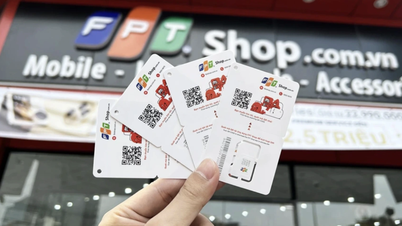
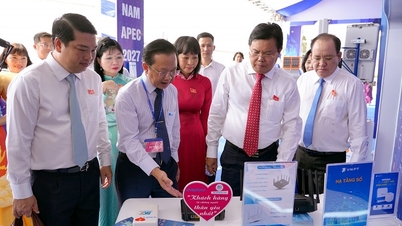

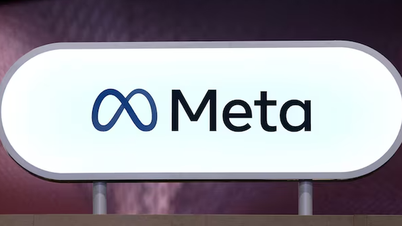

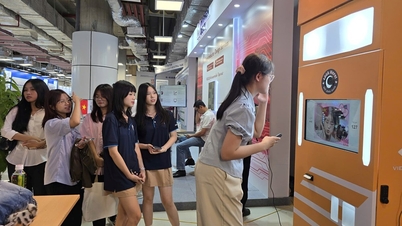

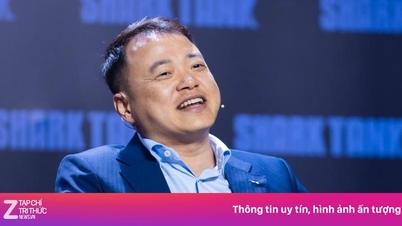



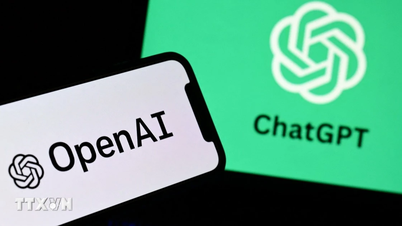








































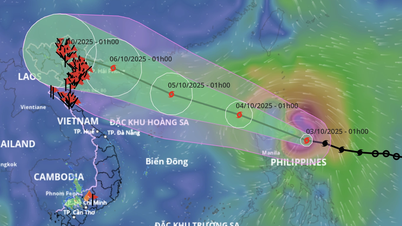







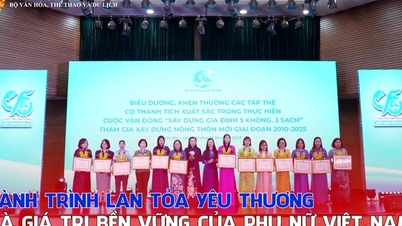








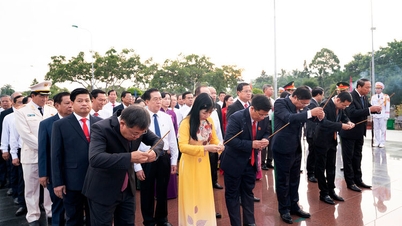



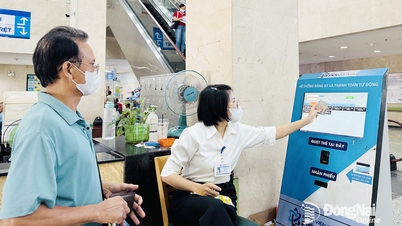

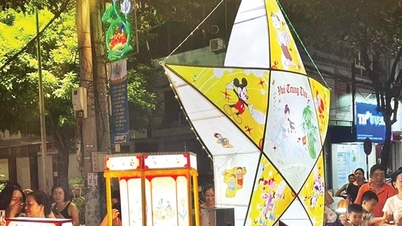

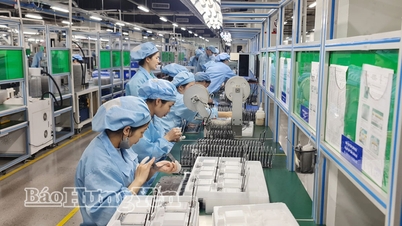














Comment (0)